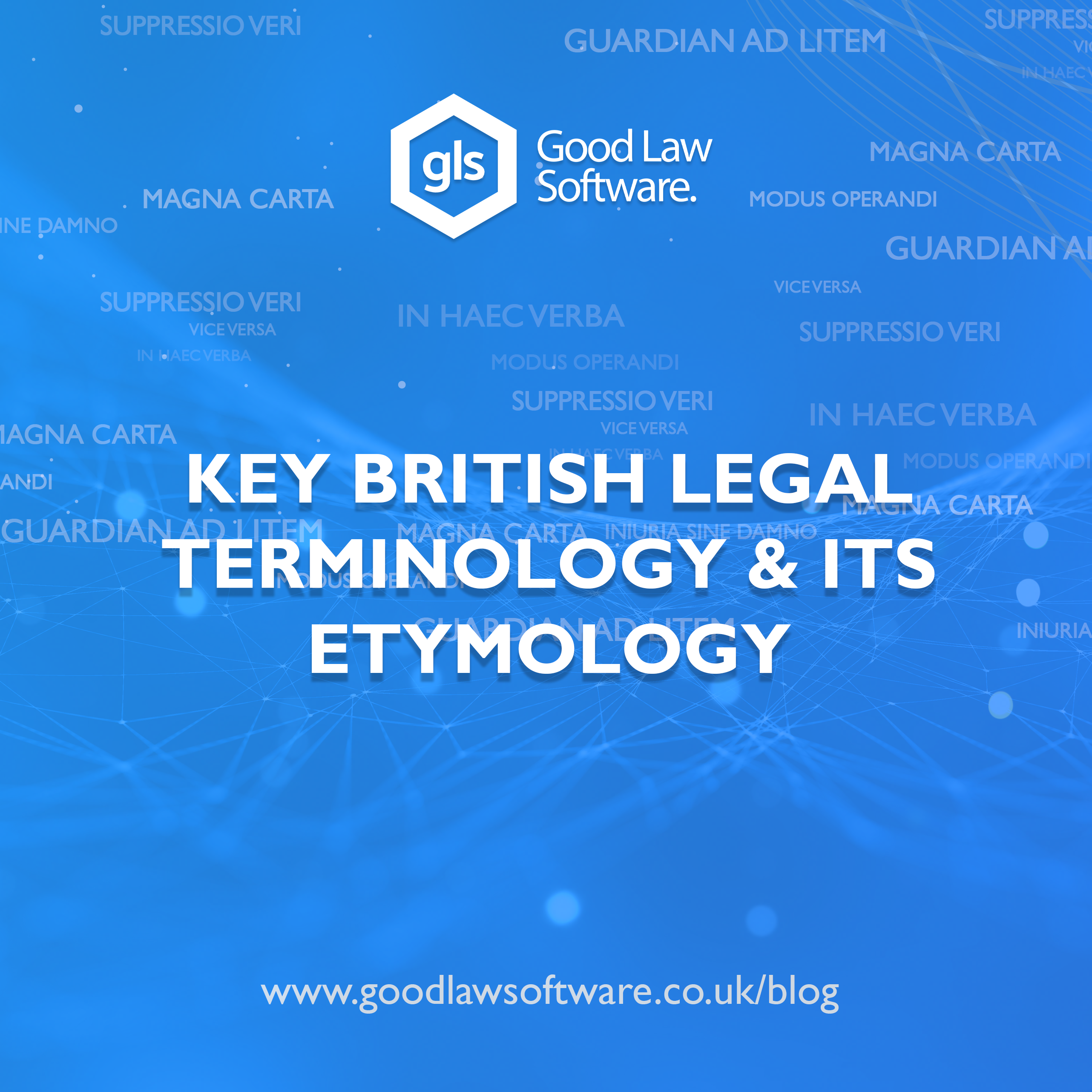Key British Legal Terminology and its Etymology

Written by Fatima Freifer
Blogger

Introduction
Despite its quirks, the court is usually considered one of the best and most independent in the world. Although common law has historically been the basis and primary source of English law, statutory legislation – which includes Acts of Parliament, regulations, and by-laws – is the most authoritative source of law. In the absence of statute law, the residual source of law is common law, with its concept of stare decisis, “to stand by things decided,” based on court decisions, tradition and usage.
Prevalence and significance of Latin
William of Normandy successfully conquered England in 1066. Prior to then, England’s laws were a patchwork of various norms and traditions from area to region. If you commit a crime in one location, you may face an entirely different punishment than if you do the same act in another.
The Normans began to implement a more consistent legal system, comparable to the one already in place in France. As with many parts of the Northern French system, Norman laws were written down in Latin, and English law followed suit. Court records were recorded in Legal Latin until at least 1733, when The Proceedings of Justice in Court Act went into force. This statute required all judicial proceedings to be documented in English.
Legal etymology
Legare and its compounds all have the meaning “job, assignment,” and can thus be understood as derivatives of lex “law.” From Latin legalis, “pertaining to the law,” This related to legere, “to collect, gather,” with derivatives meaning “to speak, or to ‘pick out words’.” [1]
Initially, courts took a literal approach, which meant that the words of a statute were read precisely as they appeared, no matter how absurd the result. The legal system today frequently employs a purposive approach, which means that the intended aim of the legislation is considered. The legal principle of noscitur a sociis – literally meaning, “a thing is known by its colleagues” – states that laws should be understood in the context in which they were intended.
Until recently, courts took legal texts literally, regardless of their purpose or context. Lawyers employed ‘clever’ terms with specific meanings to benefit their clients – either because the phrase had such a restricted interpretation that debate was pointless regardless of the larger context, or because the word could be read multiple ways, allowing room for subsequent dispute.
Some may argue that use of the legal language over plain English can cause confusion and omittance of general understanding through use of these terms steeped in history and use of Latin, termed a dead language.
This might be due to a practise of making each section of a bill or legal document only one phrase long. Shorter sentences, each dealing with only one primary issue, have been shown to be more successful in the past. This does not have to imply employing an overly simplistic writing style, but rather making a conscious effort to ensure that each line has a specific function.
Magna carta
Magna Carta, Latin for “Great Charter”, is one of England’s most famous documents. A charter is a legally binding document issued by the king or queen that guarantees specific rights.
Magna Carta was included into UNESCO’s Memory of the World Register – a collection of the world’s most important texts – in 2009.
The Magna Carta was particularly important because it signified a need for justice at a time where there wasn’t any for the layman.
As an example, to fund his costly foreign battles, King John demanded hefty levies on his nobles. If they refused to pay, he harshly punished them or confiscated their possessions. The barons insisted that King John respect the law, and when he refused, they took London, forcing John to compromise.
The excerpt from the Magna Carta that relates specifically to this situation states, “The city of London shall enjoy all its ancient liberties and free customs, both by land and by water. We also will and grant that all other cities, boroughs, towns and ports shall enjoy all their liberties and free customs.” [2]
This is the most unexpected of the four provisions that remain in the legislation. It was intended to ensure that the privileges granted to London and other cities and towns were not revoked as a result of King John’s corruption. For example, one of the rights that was essential to the city of London was the ability to pick its own mayor. The people of England, like the English Church, sought to ensure that the monarch did not have last say over everything.
Despite the fact that over a third of the language was removed or extensively altered within ten years, and virtually all of the provisions have since been revoked, Magna Carta remains a cornerstone of the British constitution.
The origin and development of Parliament
Parliament began as an English matter. It was more of an exclusive club for the monarch and wealthy men than a Parliament. The monarch sought their counsel but acted as he pleased. These informal gatherings evolved into a formal structure that eventually became the House of Lords. England was busy battling with Scotland and invading Wales during the time, and it remained so for several centuries.
Parliament is derived from the French term parler, which means, “to speak or converse.” [3]
The English King and his government’s everyday political requirements led to the formation of Parliament. It did not evolve gradually through time, but rather in bursts of fast development.
Nonetheless, despite its accidental and unplanned evolution, the contemporary British Parliament is one of the world’s oldest continuous representative assemblies.
When Wales joined the Union in 1542, the seeds of a United Kingdom Parliament were sowed. Wales was a patchwork of autonomous regions at the time. But then came Henry VIII, a man who revelled in theatrical gestures. He was concerned that having handed the Catholic Church marching orders, the Catholics would not depart peacefully. To keep the Welsh from succumbing to their influence, he decreed that Wales would be controlled by England. Parliament was now a full-fledged institution, and Wales was permitted to send officials with ministerial powers.
Conclusion
Today, the two houses of Parliament – the House of Lords and the House of Commons meet in London at the Palace of Westminster, and they are the only bodies in the United Kingdom’s constitutional monarchy government with the ability to draught legislation and pass laws.
References
[1] Online Etymology Dictionary, https://www.etymonline.com/word/legal
[2] Key Clauses of Magna Carta, Salisbury Cathedral, https://www.salisburycathedral.org.uk/magna-carta-collections-what-magna-carta/key-clauses-magna-carta
[3] Online Etymology Dictionary, https://www.etymonline.com/word/legal








